Afrobeats is born out of the genius of music idol Olufela Anikulapo Kuti, who remarkably was a man whose existence was significantly shaped by the various women in his life. While the women that played major roles in shaping Fela’s worldview and those who shared the famous world stage alongside the enigma can be said to be the first Women of Afrobeats, this piece is a contemplation of some of the notable female talents that as at different points made an appearance in the somewhat topsy-turvy female end of the modern era of Afrobeats.
Since the turn of the century, there have been several female artistes who have broken into the Nigerian music scene and created much stir, however, many of these women weren’t able to leave the same mark as their male counterparts. Different reasons might account for the disparity in the success of both genders in the industry. However, what can be agreed on is the fact that the industry has witnessed a steady supply of male talents in a manner that ensures continuity, succession, and upward mobility in a fashion similar to the famous Jamaican 4X1 relay team. This, sadly, isn’t the case for female talents. The influx of female talents in the Nigerian music industry has been sporadic. For the female side of the industry, the situation is similar to a shooting star. They appear to the glee of the industry leaving everyone in awe and high hopes only to unceremoniously disappear behind the clouds with no certainty of another appearance.
Weird MC is a name that jerks the memory and brings to mind the image of a woman in baggy jeans and timberland rapping with a swagger and finesse that makes you ask “who’s this person?” Weird MC began rapping in the UK where she grew up in the 90s and in 1996, she released her first project she tagged “Simply Weird”. The album had the track “Allen Avenue” which enjoyed a considerable level of commercial acclaim and the album is regarded as one of the pioneering rap albums in Nigeria, it however, wasn’t much of a success.
Her wait for wide mainstream success lasted a decade and it was worth the wait as her 2006 single “Ijoya” produced by veterans Don Jazzy and JJC became a mega-hit. The single off her sophomore album “After Da Storm” was a jam that had chairs crashing against vibrating bodies whenever it came on. It was a hot single that was on every lip and which introduced Nigerians to a female MC coming to spice up the game.
Smoking hot, Weird MC went on to win the Channel O Music Video Award for Special Effect and she was featured by sensational duo PSquare on the remix of their hit single “Bizzy Body”. Although “Ijoya” made Weird MC the first contemporary afrobeat female star, she was to bow out of the limelight shortly after achieving mainstream success. While there isn’t much data that captures the success of her hit rap singles “Ijoya” and “Riranwo,” the cultural impacts of the songs speak for themselves and Weird MC would always stand as a point of reference for the evolution of Nigerian rap music.
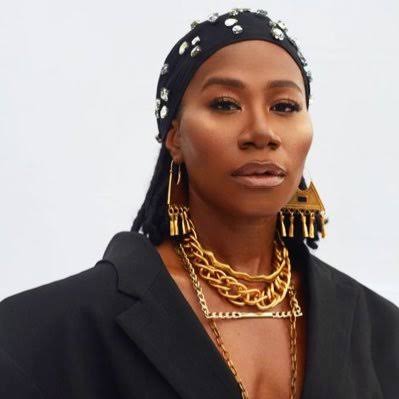
The wait for the next female star with the capacity to scratch beyond the surface didn’t take too long. In 2007, Asa broke onto the scene with her debut album “ASA” which had hit singles “Jailer” and “Fire on the Mountain”. Her talent was distinguishing and her style of music left an instant impression on the market. However, it didn’t take long to understand that the French-born Nigerian singer had no intention to be home base. Although her music was strongly influenced by her Yoruba heritage, her feet, as it turned out were firmly planted in France her birth country. Asa wasn’t to be the Afrobeats Queen that would open the door for the future generations of female artistes. However, her music left an indelible mark and served as an inspiration for future singers and songwriters.
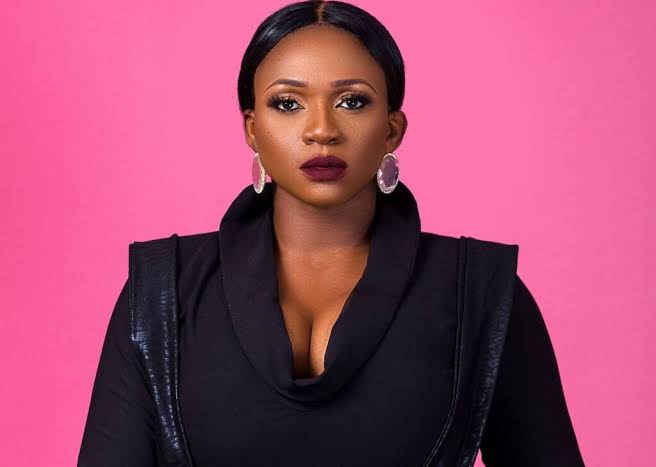
In 2008, Waje the beautiful voice behind the famous chorus of Psquare’s 2008 hit single “Do Me” launched her career and things were looking up for the female side of the industry. Almost at the same time, Omawumi fresh off the music talent shows Nigerian Idol where she dazzled with her powerful vocal range which saw her finish as the first runner up threw her hat in the ring. Omawumi would go on to win the Headies Next Rated Award and release four studio albums, an EP, and become a popular figure. Waje would have two studio albums, an EP, and multiple awards under her belt. However, their powerful voices and talent weren’t enough to propel them to the top of the ladder where they could exact the level of dominance needed to effectively compete with the top male acts that dominated the industry.
The wait for a big female Afrobeats star with street-level fame since Weird MC ran the show with “Ijoya” ended at the start of the new decade when young talent Mo’Cheddah took the industry by storm with her single “Ko ma Roll” off her debut album “Franchise Celebrity”. The single was so hot it threw 20-year-old Mo’Cheddah into stardom. Mo’Cheddah was having it so good she won the 2010 MTV Africa Music Award for Best New Artiste of The Year, 2010 Channel O Music Video Awards for Best Female Video, and was nominated for the 2010 Next Rated Awards. Mo’Cheddah’s success was unprecedented and the expectations were high and demanding. These expectations wouldn’t be met as Mo’Cheddah gradually bowed out of the limelight. While her male counterparts waxed stronger, she gradually faded into the background and future attempts to stage a comeback just didn’t have the ambiance and effect of a 20-year-old Mo’Cheddah in high-top sneakers.
There was a bright light in the form of Goldie, the stylish artiste with the signature golden hair that rose to fame in 2010 with her single “Jawo Jawo” featuring label mate Jaywon. She injected some excitement into the mostly uneventful female side of the industry and dazzled fans with her personality and artistry. She was able to give a good account of herself by releasing some decent singles in the form of two studio albums “Gold” and “Gold Reloaded”. Sadly, her career was brought to an unceremonious end after she was snatched by the cold hands of death in 2013. Although her career wasn’t particularly on fire as at the time of her death and she had even appeared as a contestant on a reality TV show which was a questionable career move akin to appearing on Dancing with the Stars in America, she definitely still had something to offer but unfortunately, it was not to be.
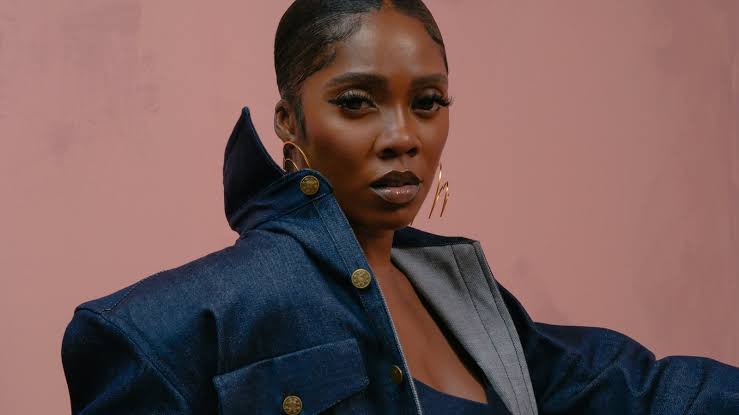
For the female end of the industry, it was a case of a ship rocked by flashes of fireworks and uncertainties. The ship would however be steadied by the arrival of Tiwa Savage. In the late 2000s, the growing Nigerian music industry caught the eyes of Nigerian talents in the diaspora some of whom returned home to kick off their music careers. Among these returnees were Tiwa Savage and Seyi Shay both of whom were already doing music professionally abroad. Tiwa Savage’s first single “Kele Kele Love” was released in 2011 to positive acclaim. Talented and born for the big stage, Tiwa Savage became an instant favorite especially for her sensual and feminine charm which the industry had long been missing. And it was this charm and distinguishing talent that set her on the path to superstardom. She capped her debut year with a Headies Next Rated Nomination that pitted her against Ice Prince, Olamide, and Wizkid in what many agrees is the most competitive set to date.
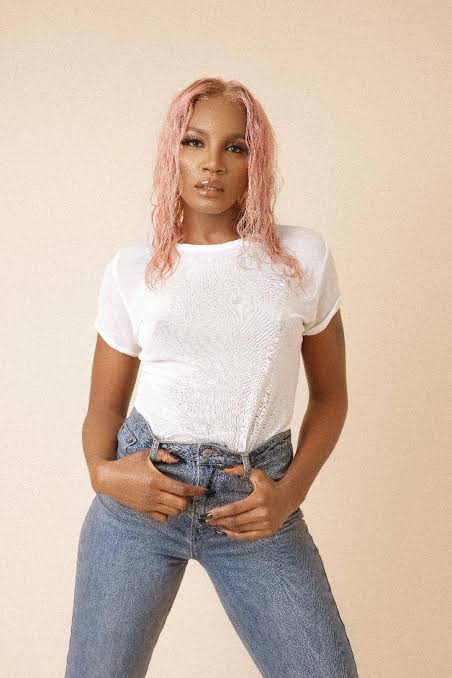
After her single “Irawo” became popular, Seyi Shay joined the list of female artistes working to compete with their male counterparts at the top of the game. It was a good time for the industry as Chidinma who had recently won the reality music show Project Fame launched her career in 2012 with “I’m in Love” and “Jankoliko” featuring Sound Sultan with the latter making waves and placing her amongst the hottest female artistes. Despite the obvious talents that propel her to victory on the reality music show, Chidinma’s career didn’t quite live up to expectations. Her time in the limelight was brief and uneventful.
Also in 2012, Jodie came on to the scene with super hit “Kuchi Kuchi” and quickly disappeared like a thief in the night. The single was the highlight of her career that was quickly forgotten and only remembered for its nostalgic importance.
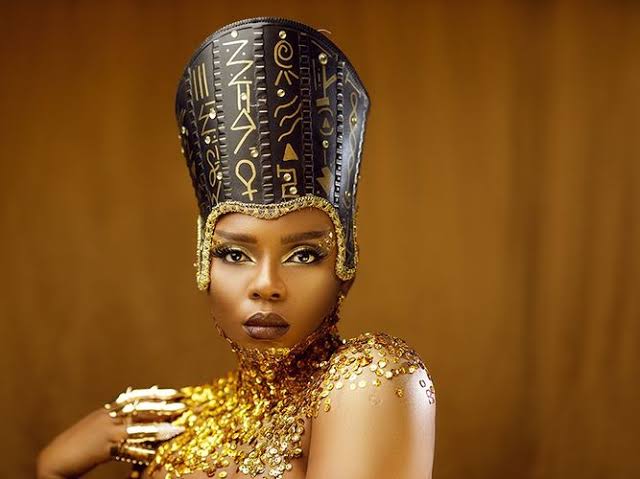
The Nigerian and African Music scene would welcome the birth of a superstar in 2013 when Yemi Alade’s “Johnny” took over speakers across the country and continent. Before “Johnny,” Yemi Alade had some singles to her credit but she was still very much unknown. Hence nothing prepared Nigerians for the monster hit that “Johnny” was. Looking back at the history of Afrobeats since 2000, it can be said that “Johnny” was one of the major turning points for female artistes in the industry. Yemi Alade joined Tiwa Savage at the top of the game and for the first time, the Nigerian music industry was to witness a battle for dominance between two female stars which is something that had existed since the early 2000s amongst their male counterparts.
2014 brought some good tidings in the form of Simi who had made the bold switch from gospel to secular music. She introduced herself to the industry with her single “Tiff” which revealed the realms of her talent and spectacular vocals. Simi would go to become a household name and a force to be reckoned with in the Nigerian music industry.
2015 ushered in Cynthia Morgan who rocked the scene in a bold dancehall fashion that set the industry on fire. Tiwa Savage already disrupted the collective sanctimony of the industry, hence it might have been easier for Cynthia Morgan to swoop in and establish herself as a Naija bad girl. With an enviable talent and the right team, Cynthia Morgan quickly established herself as the next big thing and was consequently nominated for the coveted Next Rated Prize. However, things began to gradually take a nosedive after that. Talented with an inflammable personality, many believed her struggles scuttled her career and resulted in talent with the potentials to become a generational act petering out into nothing.
Almost at the same time, Dija was signed to Mavins record and with the backing of an industry giant, many expected her to do big things. Sadly, she didn’t quite crack the top level. Dija had some decent singles but that was all there is to it. Her stint at the top level was brief and forgettable. The case of Cynthia Morgan’s career might be seen as one of monumental talent and opportunity wasted by a troubled personality. It lies in contrast to Dija whose career appears more to be a case of underutilized opportunity prompted by an unconvincing level of talent and artistry.
Several female rappers have entered the industry at different points since Weird MC bowed out of the game. However, despite the enthusiasm with which they were received and the moments of talents they displayed, none has been able to match the mark set by Weird MC.
Undoubtedly, all of these women were willing and anxious to give their best and make the most of their chances as far as circumstances and talent would permit. However, it wasn’t enough to make their career more than a stint. The struggles of this generation of female artistes who tried and failed to break into the top strata of the industry have culminated into sacrifices and lessons that have come to shape the industry.
Since breaking into the limelight, Tiwa Savage and Yemi Alade have ascended into superstardom, thus measuring up with the biggest male artistes in an unprecedented manner. They are undoubtedly amongst the biggest stars on the continent and have become role models for upcoming female stars and future generations of female talents. They are afrobeat royalties adorned with super talent, fame, accolades, and a worthy fan base.

Afrobeats Queens Yemi Alade and Tiwa Savage have since been joined by Simi and Niniola another product of Nigeria’s Reality Singing competition. Niniola came with a fresh talent that merged afrobeat and house music to create a distinctive sound made peculiar by her sultry lyrics. Niniola would later be joined in the industry by her sister Teni who had proven her talent by writing a hit song for Davido. Teni would go on to become a star in her own right and one of Nigeria’s favorite artistes.
From Tiwa Savage to Yemi Alade, to Simi, Niniola, and Teni, these women possess an impressive level of talent which can also be said of some of the less successful female artistes before and after them.
However, what sets them apart is their success and fame which is propelled by an applaudable level of consistency. Their joint efforts have resulted in a more structured and defined shape for the female end of the industry and their success has paved the way for a new generation of aspiring female stars.
The past two years have seen the emergence of more female artistes than ever before. At the fore of the new school of female talents is Tems, whose invaluable contribution to the intercontinental hit “Essence” has thrown her into international fame. With two successful Eps, Tems’ talent has not only gotten her recognition in Nigeria. She has also attracted attention abroad where she’s greatly cherished and respected. Tems’ career rose to a new level in 2021 with her single “Damages” peaking at NO.6 on TurnTable Top 50, and “Crazy Tings” rising to N0.16 on the charts. For Tems, the sky is bright and clear. She’s a star in her own right. And there’s no doubt that she can keep drawing from her reservoir of talent as she plays a pivotal role in the propagation of the gospel of Afrobeats to the world.
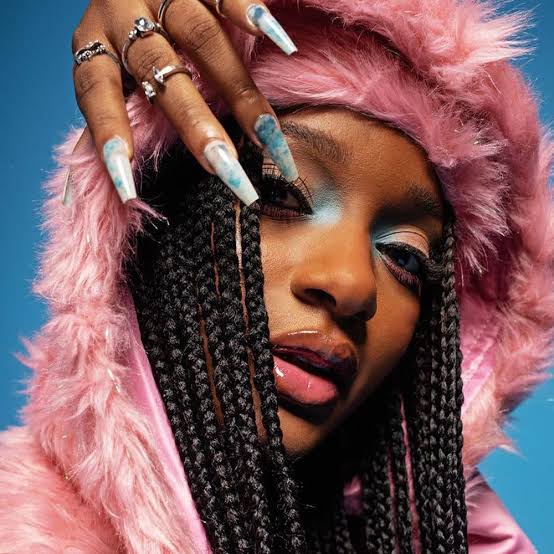
2020 also saw the introduction of 19 years old Mavin signee Ayra Starr. She announced herself with her eponymous EP “Ayra Starr” which had top singles “Away” which peaked at NO.4 on TurnTable Top 50 and “Sare” which was also a fan favorite. The EP displayed her unique talent and distinctive appeal and it was expectedly well received by the industry. Ayra Starr enjoys the enviable privilege of having the backing of a label that has produced multiple megastars hence the high expectations.
A year after her debut, Ayra Starr released her debut album “Nineteen and Dangerous”. The album displayed her mettle and showed that despite her short time in the industry she has come of age. The album has the super hit and street anthem “Bloody Samaritan” with which she holds the fine record of being the only female solo artiste to reach the summit of the TurnTable Top 50. 19 and dangerous, Ayra Starr is taking no prisoners. She’s a special talent with the artistry of a veteran which makes her one to look out for.
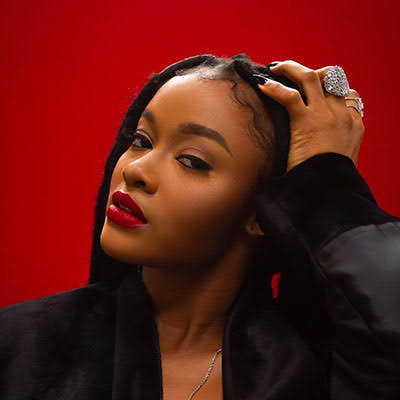
Another female act on the rise is Liya who is DMW’s First Lady. With her debut EP “Alari,” she displays the unique talent with which she caught Davido’s eyes. Her single “Melo” is a fan favorite and it featured on TurnTable TV Charts. Liya boasts of a phenomenal voice and a unique style that combines rich cultural essence that blends perfectly with an appealing pop sound. When great talent meets great management, there’s bound to be fireworks and from all indications, Liya promises to be a kaleidoscope of talent that will dazzle the industry.
Also in the mix is Ria Sean the upcoming talent on the books of Aristokrat record. Her debut EP “Fluid” lives up to its name as it displays the formlessness of her peculiar talent. While she might not be quite mainstream yet, she possesses the talent needed to propel her to the top, and with a management that has so far displayed unalloyed trust in her, and as listeners daily get exposed to her talent, there’s surely more to come.
Another special talent is Fave whose name circulated within the industry after she prominently featured on Olamide’s album “UY SCUTI”. She embodies talent and confidence that makes for an effortless, simple, and memory singing style. Her single “Baby Riddim” has enjoyed considerable success across multiple platforms which has seen it reach No. 2 on TurnTable Top 50. The young talent also caught the eyes of businessman Mr. Eazi whose company Empawa has partnered with her to take her music to the next level. With a flaming hot talent and a partnership that has recorded impressive successes, Fave is destined for the big stage.
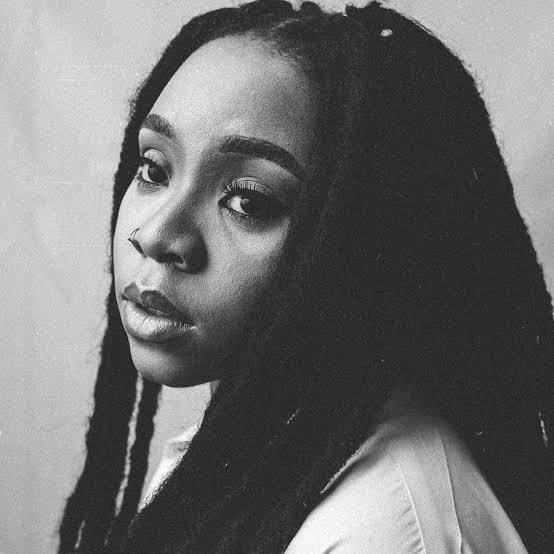
A look at the history of the Headies Next Rated category shows that only one female artiste gets nominated yearly. This is so because of the very few women performing at the level that attracts such recognition. It’s, therefore, encouraging that perhaps for the first time since the prestigious award was created, there’s a chance that more than one lady will be nominated for the next rated award.
It’s a remarkable feat to have five and more fresh female talents on the books of top labels pushing for a place at the top of the game. The female side of the industry can finally boast of an impressive influx of female artistes with the talent, artistry, and backing to stand as worthy successors to the veteran superstars Yemi Alade and Tiwa Savage whom for long shared the burden of keeping women at the top of the game.
Today, there are more top female artistes, DJs, and executives occupying top positions in the industry which is an indication of the coming of age of women in the industry. It can now be said that the industry is at the point where top female artistes are better positioned to use their platforms in promoting upcoming and emerging female talents like their male counterparts have been doing.
The story of the women of Afrobeats is one that is filled with ups and downs all of which have shaped the industry and brought it to its current position. Respect must be given to the women who toiled in the industry and played different roles behind the scenes in the quest to strengthen the place of women in the industry. They can take pride in the fact that at last, there’s a spine forming at the female end of Africa’s biggest music market.